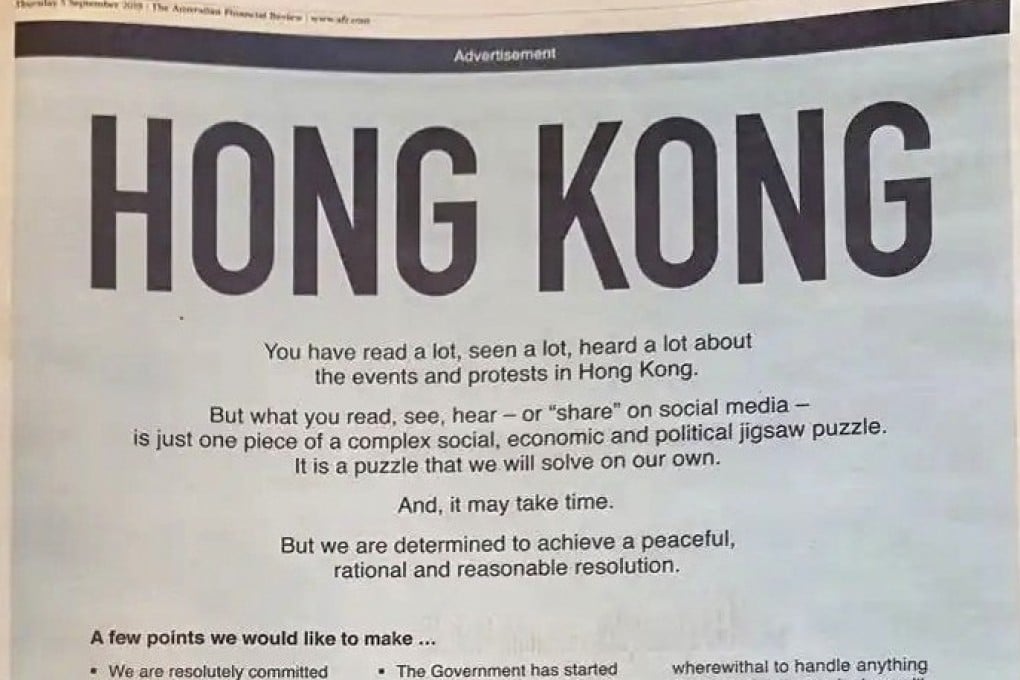After extradition bill withdrawal, Hong Kong launches global ad campaign to reassure investors
- Full-page ads will appear in selected newspapers around the world stating that Hong Kong remains a safe and open city
- The government says the time is right to provide a ‘sincere and unvarnished assessment of our position’

The first of the adverts appeared in The Australian Financial Review, a broadsheet aimed at businesspeople and finance professionals, on Thursday.
“We remain a safe, open, welcoming and cosmopolitan society and an internationally connected, vibrant and dynamic economy,” the advert stated. “We will no doubt bounce back. We always do.”
The advertisement also highlighted that the government had started a “cross-sector dialogue to talk through differences and look for common ground”, while remaining “resolutely committed to the ‘one country, two systems’” framework by which Beijing governs the city.
The Hong Kong government spokesman declined to say how much the advertising campaign would cost, but the full-page, full-colour advertisement in the AFR was understood to have cost A$20,000 (US$13,600).